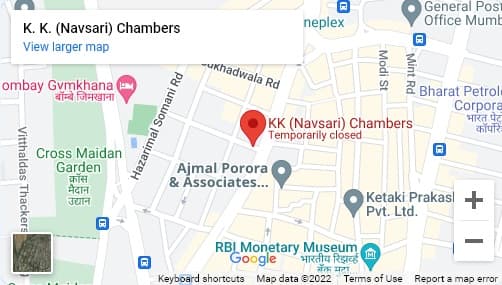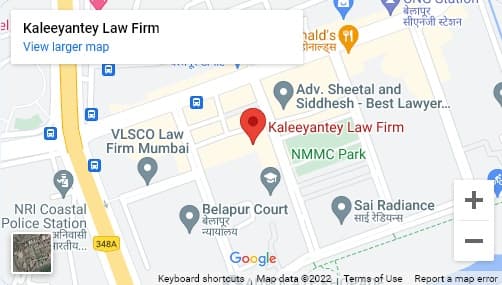A breach of contract in business can lead to trust issues, disruptions in delivery, and potential threats to a company’s foundation.
Understanding breach of contract claims in business is crucial for dealing with business partners, suppliers, or clients, as they involve non-compliance with legally binding obligations.
From compensatory damages to specific performance, this comprehensive guide outlines everything to help you navigate the legal process.
Understanding a Breach of Contract
A breach of contract arises when one party fails to fulfil a contractual obligation without a lawful excuse. Such failure can range from minor delays to a complete refusal to perform contractual obligations, thereby disrupting the agreed-upon terms.
Under the Indian Contract Act of 1872, courts treat the breach as a civil wrong, allowing the non-breaching party to claim damages, rescission, or specific performance as remedies.
Recognising a breach requires proof of an existing valid contract, the breach itself, and resulting losses to the non-breaching party.
Types of Contract Breaches
- Minor: A slight deviation that doesn’t destroy the contract’s purpose, requiring only compensatory damages. The parties perform the contract substantially but fail to perform some minor requirements of the contract.
- Material: A substantial failure that undermines the agreement, entitling the non-breaching party to end the contract and seek full remedies.
- Anticipatory: When a party signals future refusal to perform, it is legally actionable and allows the non-breaching party to cancel the contract or seek remedies.
- Actual: An actual breach occurs when a party fails to fulfil their contract obligations, including not making payments, being unable to deliver goods or services, or performing poorly.
- Mutual: Occurs when both parties fail to perform, often leading to mutual rescission or adjusted remedies.
How Does a Breach of Contract Happen?
Understanding breach of contract claims in business involves identifying how and why breaches occur. Breaches can occur from missed deadlines, substandard work, financial difficulties, or shifting business needs. In some cases, fraud, misrepresentation, mistake, or duress may prevent performance or even render a contract void.
Furthermore, changing circumstances, such as supply chain disruptions or legal restrictions, may legally excuse non-performance. Understanding the cause is crucial for evaluating appropriate responses under Sections 73–74 of the Indian Contract Act, particularly regarding unliquidated and liquidated damages.
Legal Steps To Take for Breach of Contract in Business
- Review Your Contract Carefully: Check clauses on obligations, breach definitions, dispute resolution, and limitation of liability under Section 74 of the Indian Contract Act, 1872.
- Document Everything: Maintain dated records of communication, invoices, performance logs, quality issues, and breach notices.
- Send a Formal Notice: Issue a legal notice requiring the performance of a specific action or payment of damages, a precondition, before bringing a suit against the party at fault.
- Consider Mediation: Utilise ADR clauses or court-recommended mediation to save time and reduce costs.
- Consult with Legal Experts: A lawyer can interpret clauses, assess liability, calculate damages, and provide strategic advice.
- File a Lawsuit if Necessary: File suit within the 3‑year limitation period under Sections 5 & 14 of the Limitation Act, unless exceptions apply.
Possible Remedies in Contract Breach Cases
1: Compensatory Damages
Compensatory damages involve compensating the non-breaching party for the losses incurred due to the breach. It aims to restore the non-breaching party to the position they would have been in if the contract had been fulfilled.
These damages cover direct losses, such as lost income, replacement costs, and necessary expenditures (e.g., paying another contractor for delayed work).
It is classified into two types:
- Direct Damages: These refer to the actual losses incurred as a result of a breach. For instance, if a supplier is unable to deliver products, the buyer may recover the cost of obtaining those items from another supplier.
- Consequential Damages: Consequential damages, also referred to as special damages, are indirect losses that are foreseeable at the time of the contract. For instance, failure to deliver goods can lead to lost business, and those affected may claim consequential damages.
2: Punitive and Nominal Damages
Punitive damages are intended to punish the breaching party for extreme or malicious action while also deterring future behaviour, and are more common in tort situations.
Nominal damages are minor monetary damages given when a breach of contract occurs without significant loss to the non-breaching party, acknowledging the breach and establishing the plaintiff’s right to sue.
3: Liquidated Damages
Liquidated damages involve a fixed monetary amount agreed upon in the contract to be payable if a breach occurs. Section 74 of the Indian Contract Act permits such clauses, provided the sum reflects a genuine pre-estimate of loss rather than a punitive fine.
The Supreme Court clarified in Fateh Chand v. Balkishan Dass that actual loss need not be proven when enforcing such clauses. However, courts can reduce amounts deemed unreasonably high.
Liquidated damages offer certainty and avoid the need for lengthy loss quantification, making them essential tools in commercial contracts.
4: Specific Performance
Specific performance is an equitable remedy that aims to fulfil the party’s contractual obligations rather than just paying damages. It applies to unique contracts, especially involving immovable property, where money cannot adequately compensate the innocent party.
It is governed by Sections 10–25 of the Specific Relief Act, 1963, and amended in 2018 to streamline enforcement. Courts retain discretion but generally favour this remedy where performance is practical and equitable.
Plaintiffs must show readiness and willingness to perform their part. Specific performance preserves contractual integrity and is particularly effective when alternative remedies are unavailable.
Statute of Limitations in Breach Cases
Understanding breach of contract claims in business also involves knowing the time limits for legal action. Under India’s Limitation Act of 1963, most breach of contract claims must be filed within three years from the date the breach occurred.
Section 3 further specifies that parties cannot contractually extend this period. However, Sections 17–19 offer exceptions: litigation may be delayed if there was fraud, mutual mistake, concealment of facts, or if the defendant acknowledges the debt in writing.
Courts generally treat limitations as procedural, not substantive: they must dismiss cases filed after the limit, even if neither party raises the issue. In cases of continuing breaches, each missed obligation restarts the clock under the "refreshing cause of action" doctrine.
How Can a Lawyer Help You?
A lawyer plays an essential role at every stage of a breach of contract dispute in business.
- From early detection to final enforcement, they bring expertise and strategic guidance. First, they assess contract terms, classify breach types (minor vs material), and calculate potential damages.
- Then, they draft and send legally sound notices and represent you in mediation, arbitration, or court.
- During proceedings, they submit evidence, cross-examine witnesses, and make strong arguments.
- A lawyer also ensures statutory compliance, including adherence to limitation deadlines, and helps enforce judgments through execution mechanisms (e.g., injunctions, attachment orders).
Read More: Quasi-Contracts in Business Law
Summary
At Kaleeyantey Law Firm, we specialise in understanding breach of contract claims in business, helping companies navigate everything from minor setbacks to material breaches, limitation clauses, and alternative dispute resolution (ADR) options.
Understanding a Breach of Contract
A breach of contract arises when a party fails to fulfil their contractual duties without a valid reason. Under the Indian Contract Act of 1872, it’s treated as a civil wrong, allowing the affected party to seek remedies like damages or contract cancellation.
Types of Contract Breaches
- Minor
- Material
- Anticipatory
- Actual
- Mutual
How Does a Breach of Contract Happen?
A breach of contract can arise due to missed deadlines, poor performance, fraud, or external factors such as legal or supply chain issues.
Legal Steps To Take for Breach of Contract in Business
- Review your contract carefully
- Document everything
- Send a formal notice
- Consider mediation
- Consult with legal experts
- File a lawsuit if necessary
Possible Remedies in Contract Breach Cases
- Compensatory Damages
- Punitive and Nominal Damages
- Liquidated Damages
- Specific Performance
Statute of Limitations in Breach Cases
Breach of contract claims in India must typically be filed within 3 years under the Limitation Act of 1963. This period can’t be extended by contract, but exceptions exist for fraud, mistake, or written acknowledgement of debt.
How Can a Lawyer Help You?
- Corporate law firms or lawyers assist in breach of contract cases by assessing the breach, calculating damages, issuing legal notices, and representing you in mediation, arbitration, or court proceedings.
- They ensure compliance with legal deadlines and assist in enforcing judgments through legal tools like injunctions and attachment orders.
Read More: Key Considerations: Choosing a Mumbai Law Firm
FAQs
What is a breach of contract?
A breach occurs when a party fails to uphold contractual terms without a valid excuse. It can result in minor delays or full refusal, triggering legal claims under civil law frameworks, such as the Indian Contract Act.
What are the types of contract breaches?
Breaches include minor (partial), material (significant), actual (non-performance), anticipatory (future refusal), and sometimes mutual breach. Each type affects remedy options and negotiation strategy.
How do you prove a breach of contract?
You must show that a valid contract existed, one party breached it, you performed, and you suffered damages. Documentary evidence, communications, and contemporaneous records support your claim.
What is a statute of limitations in breach cases?
In India, the Limitation Act of 1963 sets a three-year limit from the date of the breach. However, exceptions apply in cases involving fraud or new acknowledgement.
What are common defences to a breach claim?
Defences include lack of a valid contract, the plaintiff's breach, performance impossibility, fraud, duress, mistake, or expiration of the limitation period. Lawyers analyse context and law to argue defences.
What role does a business lawyer play in breach cases?
Lawyers assess the severity of breaches, draft notices, advise on remedies, negotiate settlements, represent clients in alternative dispute resolution (ADR) or court, and execute final orders, including damages, specific performance, or injunctions.
How can businesses prevent breach disputes?
Businesses prevent disputes through clear communication, limitation-of-liability clauses under Section 74, dispute-resolution mechanisms, performance tracking, legal audits, and regular contract reviews.
Can a verbal agreement be breached?
Yes, oral contracts can be enforceable if they meet the legal elements of offer, acceptance, consideration, and intent. However, proving them is more challenging than relying on written contracts.
Can a contract be breached unintentionally?
Yes, accidental failure, such as missed deadlines due to oversight, non-performance, or partial performance, is still a breach.
Can you sue for breach if there's no written contract?
Yes, you can sue based on oral or written contracts. But enforcement depends on proof of terms and performance. Written contracts are clearer, but oral agreements can still be legally binding.




